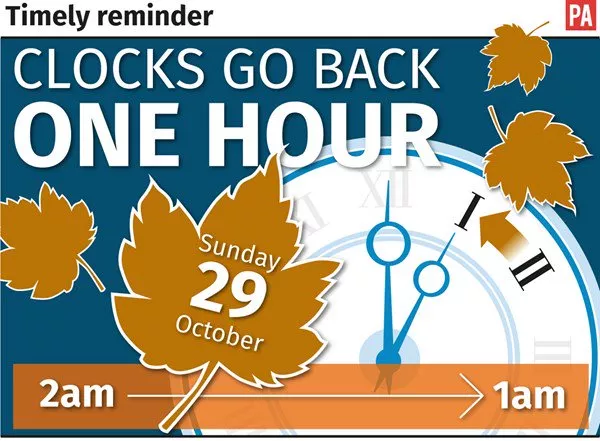We will be able to enjoy an extra hour under the duvet on Sunday when the clocks go back at 2am – and health and cognitive bonuses – according to sleep experts.
As Daylight Saving Time ends, we will switch from British Summer Time (BST) to Greenwich Mean Time (GMT), heralding the start of lighter mornings but darker evenings.
But according to Professor Matthew Walker, director of the Centre for Human Sleep Science at Berkeley California, a small boost to our nightly slumber can also improve memory and increase learning capacity.
Prof Walker, who recently published his book Why We Sleep, drawing on 20 years of research and findings from his laboratory, said: “Just 60 to 90 minutes of additional sleep boosts the learning capacity of the brain, significantly increasing memory retention of facts and preventing forgetting.”
In a study published six years ago in Current Biology, Prof Walker, along with a team of other researchers, demonstrated that during a demanding memorising task, test subjects who were allowed extra nap time performed better than those who did not.
They found the brain’s ability to learn was linked to sleep spindles – which are fast pulses of electricity generated during REM (rapid eye movement) sleep, which accounts for 25% of total sleep time in adult humans.
Spindle-rich sleep, which is said to occur in the second half of the night, helps with the brain’s ability to create new memories by “clearing a path to learning”.
But it’s not just about improved brain power.

Another study, published in 2012 in the Journal of Sleep Research, found that getting an extra hour of sleep significantly improved blood pressure levels among people with hypertension or pre-hypertension.
Daylight Saving Time has also been linked to heart attacks.
In a study published in the British Medical Journal in 2014, physician Amneet Sandhu of the University of Colorado reported a 24% increase in heart attack admissions at hospitals in Michigan from 2010 to 2013 on the Monday after the clocks went forward in spring, when compared with other Mondays throughout the year.
In contrast, they noted a 21% decrease in heart attacks in the same hospitals on the Tuesday after the clocks moved an hour back in autumn.
The extra hour in bed certainly comes in handy following last year’s poll by the Royal Society for Public Health which revealed people in the UK slept an average of 6.8 hours, under-sleeping by about an hour a night.






